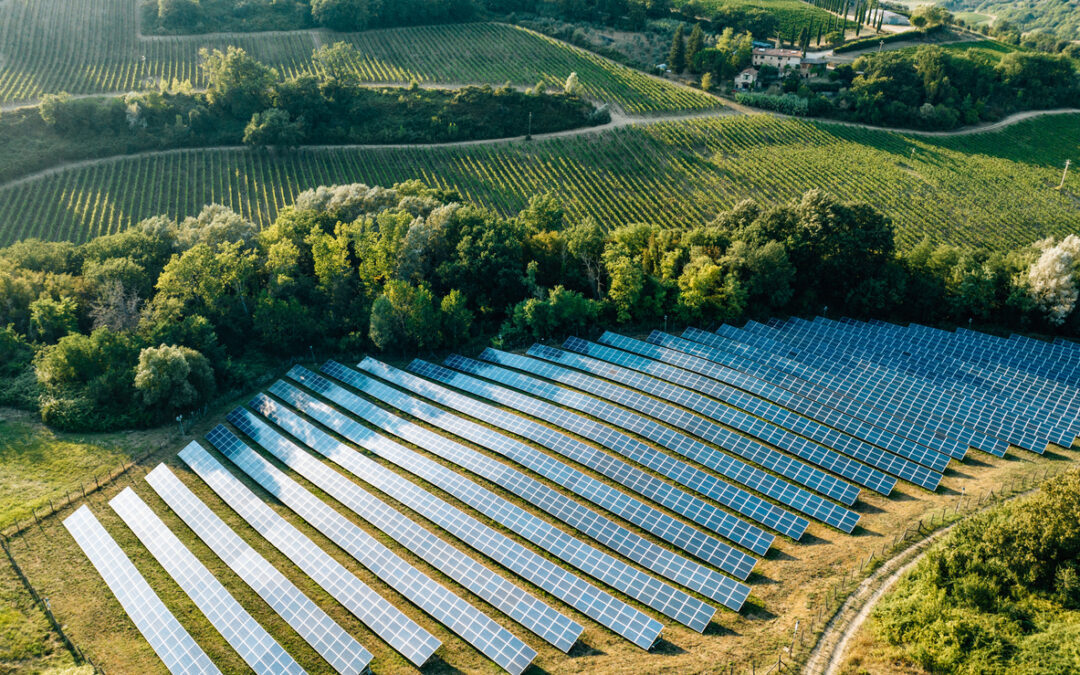As the solar energy market continues to expand, 2024 brings significant updates in federal and state-level financing options and incentives designed to promote renewable energy adoption. These updates include changes to the federal solar tax credit for businesses, new and extended federal solar programs, and specific incentives available to homeowners and commercial enterprises in states like Minnesota. Staying up-to-date on these developments is critical for those looking to maximize the financial benefits of transitioning to solar energy.
Federal Solar Tax Credit for Businesses in 2024
The federal Solar Investment Tax Credit (ITC) remains one of the most valuable incentives for both residential and commercial solar projects in 2024. The Solar ITC allows businesses and homeowners to deduct a percentage of the cost of installing solar energy systems from their federal taxes.
As of 2024, the Solar ITC allows for a 30% deduction for both commercial and residential solar energy systems, an extension granted by the Inflation Reduction Act (IRA) passed in 2022. The 30% rate is expected to remain in place until 2032, after which it will gradually decrease unless further extensions are made.
For businesses, the 30% deduction applies to the total cost of the solar installation, including equipment, labor, and any related expenses. The credit is applicable for commercial solar panel installations, making it a critical financial tool for companies looking to offset the upfront cost of transitioning to renewable energy. Businesses can also take advantage of the Modified Accelerated Cost Recovery System (MACRS), which allows them to depreciate the value of their solar energy systems over five years, further reducing the financial burden.
Federal Solar Programs in 2024
Aside from the Solar ITC, several federal solar programs have been extended or updated in 2024 to support the growing adoption of renewable energy across the U.S.
Solar Investment Grant Programs
One of the significant updates in 2024 is the expansion of grant programs offered by the Department of Energy (DOE) and other federal bodies. These grants are designed to encourage the adoption of solar energy technologies and research, particularly for businesses and public entities like schools and government buildings. These programs offer funding for solar installations, battery storage, and energy efficiency improvements.
Community Solar Initiatives
Community solar initiatives continue to gain momentum in 2024, with several new projects launched nationwide. Community solar allows multiple individuals or businesses to benefit from a single solar array, often located off-site. Participants in these programs can purchase or lease a share of the energy produced by the solar installation, reducing their energy bills. The federal government has supported the growth of community solar through grants and subsidies, particularly for low-income households and underserved communities.
Minnesota Solar Incentives for Commercial Solar in 2024
Minnesota continues to be a leader in renewable energy adoption, offering a wide range of state-specific incentives for commercial solar installations in 2024. These incentives work alongside federal programs to make solar energy even more affordable for businesses.
Xcel Energy Solar Rewards Program
Xcel Energy’s Solar Rewards program offers performance-based incentives (PBIs) to businesses that install solar energy systems. Under this program, businesses are paid for every kilowatt-hour (kWh) of energy their solar panels produce, providing an ongoing revenue stream. This program is particularly beneficial for larger commercial installations that can produce significant amounts of energy.
Property Tax Exemptions for Solar Energy Systems
Minnesota offers property tax exemptions for commercial solar energy systems. This means that while installing solar panels may increase a property’s value, the added value from the solar system is exempt from property taxes. This exemption is an important consideration for businesses looking to avoid increased taxes while investing in solar energy.
Homeowner’s Guide to the Federal Tax Credit for Solar Panels in 2024
Homeowners considering solar energy in 2024 can still take full advantage of the federal solar tax credit. For residential solar panel installations, the ITC offers a 30% tax deduction on the total cost of the system. This credit applies to solar panel costs, installation, labor, and even related expenses such as battery storage systems (which have their own incentives!). For homeowners looking to install solar panels in 2024, the process of claiming the ITC remains straightforward—when filing federal taxes, they can claim the credit by completing IRS Form 5695 and attaching it to their annual tax return.
Notable Points for Homeowners:
- System Costs Covered: The ITC covers 30% of solar panel purchases, labor costs, inverters, mounting equipment, and battery storage.
- No Cap: There is no cap on the maximum value of the credit, making it highly beneficial for homeowners with larger installations.
- Carry Forward: If the homeowner’s tax liability is less than the credit value, the remainder can be carried forward to future tax years.
Maximize Your Savings and Output
As we move through 2024, federal and state solar financing programs continue to evolve, providing more opportunities for businesses and homeowners to invest in renewable energy. The federal solar tax credit remains a cornerstone of solar financing, offering substantial savings for both commercial and residential installations. Additionally, Minnesota’s state-specific incentives, such as the SEIP, Xcel Energy Solar Rewards, and property tax exemptions, make solar energy projects even more appealing for commercial enterprises.
Whether you’re a homeowner interested in the federal tax credit for solar panels or a business looking for commercial solar financing in Minnesota, there has never been a better time to invest in renewable energy. Cedar Creek Energy is here to help you navigate these programs, ensuring you maximize your savings and enjoy the long-term benefits of solar power. Contact us today to learn more about how we can assist with your solar project.

